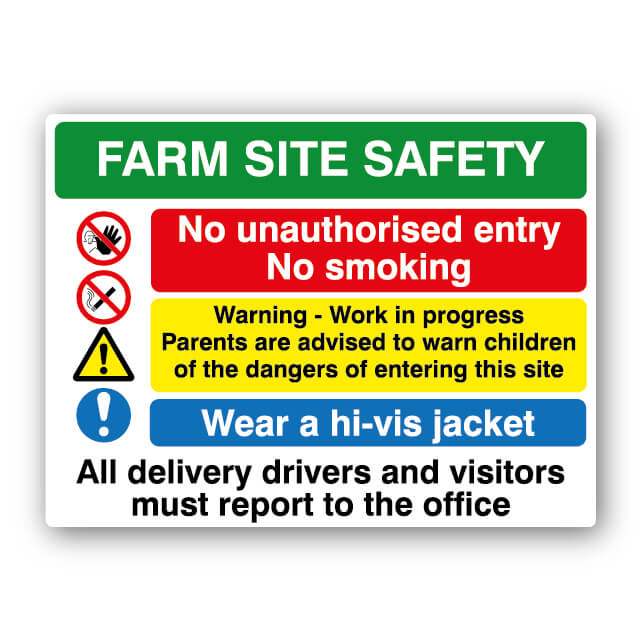I was disappointed that Steve Carden: CEO of Pāmu Farms (LandCorp) had to cut his presentation short at HASANZ 2018. I can’t even imagine having to deal with three separate farm fatalities in just six months. Let alone being a newly appointed CEO with a corporate consulting background trying to understand the world of agriculture.
What I did hear was extremely candid. Prior to the fatalities occurring, the organisation had invested in health and safety. They had ACC Tertiary Accreditation and when Steve did a tour of the country he saw ‘colourful Health and Safety wallpaper all over the place’. However, in 2015, Pāmu Farms found that there were “systemic problems in the business and a culture that was fundamentally misaligned with safety.” Which lead to the following farm fatalities:
- A farm assistant died when her quad bike rolled.
- A farm assistant died when his side by side rolled.
- A farm assistant died while driving home in a side by side.
All three of these fatalities could have been prevented, two of them if seatbelts had been worn.
What Happened After 3 Farm Fatalities?
Wilson Consulting was brought in from Australia and six tactics were implemented.
1: Make health and safety mean something – it’s about real people
2: Ensure the staff own health and safety – ‘bow-tie’ risk assessments and ongoing training
3: Focus on critical risks – what are the big things that could create the most harm?
4: Implement from the ground up – Safety Forum includes 26 farmers from all over New Zealand and together they have designed and implemented a number of initiatives including their ‘Kids on Farms policy’
5: Maintain the sense of vulnerability – the safety journey is never over and lessons need to be remembered. This includes ongoing training opportunities at Pāmu University.
6: Build a coalition of the willing – Pāmu is a part of the Agricultural Leaders’ Health and Safety Action Group and many other industry forums.
What’s Happening Today @ Pāmu Farms?
I always like to see that promises are being kept and one of the easiest ways to do this was to review the Pamu/Landcorp 2018 Annual Report and here is what I found:
- There are 44 references to safety (more than I’ve seen in any other annual report from a business that isn’t a workplace safety provider).
- The Lost time injury frequency rate AND On-farm safety observations are recorded (leading and lagging indicators).
- Along with the usual business speak:
“Our focus on operational excellence and value-add strategies…” There are statements like “Our Board and Leadership Team are determined to maintain momentum in this area of how we work every day. Our safety culture must be truly embedded on our farms so that safety in its broadest sense is simply a way of working.”
And, “Pāmu is acknowledged for its deep commitment to improving its own and others’ health and safety records.”
There was also a Materiality Matrix 2018 (pg 19. 2018 Pamu Annual Report) where fourteen issues of importance are diagrammed in such a way to show that ‘health and safety’ and ‘staff wellbeing’ rate highly to for both Pāmu as an organisation and external stakeholders.
For those of you who haven’t come across this process before, a materiality assessment is a Lean process that focuses on stakeholder engagement and is designed to give insight into environmental, social and governance issues. Although the process is quite involved, it’s valuable for strategic planning, operational management and capital investment decisions.
Case Studies Demonstrating Pamu’s Excellence in Workplace Safety
DAILY STEPS FOR WELLBEING (pg 21. 2018 Pamu Annual Report)
Thanks to Sarena Johnson, Sweetwater Farms up in Northland implemented a “Wellness Challenge”. The core belief behind the programme is “Safety starts in the mind and if you’re feeling good, you’re thinking more clearly and able to make the right decisions about managing risk and staying safe,’
To introduce a bit of fun and competitiveness, Sarena “turned the challenge into a competition between four teams – one from each of Sweetwater’s three dairy units and its drystock farm.”
Each day the teams would earn points for taking active steps toward well-being in the workplace. The activities could be anything from drinking at least eight cups of water a day, through to people quitting or cutting down on alcohol and smoking. Technically team ‘Beefie+’ from the drystock farm won; however, everyone involved had positive feedback to give.
NOTHING STUPID ON MANGATOA (pg 19. 2018 Pamu Annual Report)
No one gets far on Mangatoa Station if they don’t follow safe procedures or aren’t wearing the right gear. There is a scheduled weekly meeting where incidents and hazards, work procedures, clothing and equipment issues are openly discussed
According to Peter Eagles, Farm Manager, “the safety reminder is usually received with a smiling “yeah, thanks”. He also says, “close supervision of new staff and refresher training for everyone who uses the farm’s eight side-by-side vehicles – himself included – have also made a huge difference.”
Everyone is encouraged to speak up at the toolbox meetings, even the youngest and newest workers and no question is considered stupid. If only more workplaces were like this.
Conclusion:
I’m the first to admit that I’m a city kid. When I worked on the West Coast and had to learn about farm inspections, I honestly thought that a strainer was something I could get my kayak caught in, not part of a fence. However, as a safety professional, all I can say is if Pāmu Farms is looking for a new team member in Central Otago, pick me please! I think what they are doing is fantastic.
If you have anything to add or any other ideas on how we as a country can reduce farm fatalities please call Sarah on 0272 007 680 or email sarah@employmenow.co.nz.
